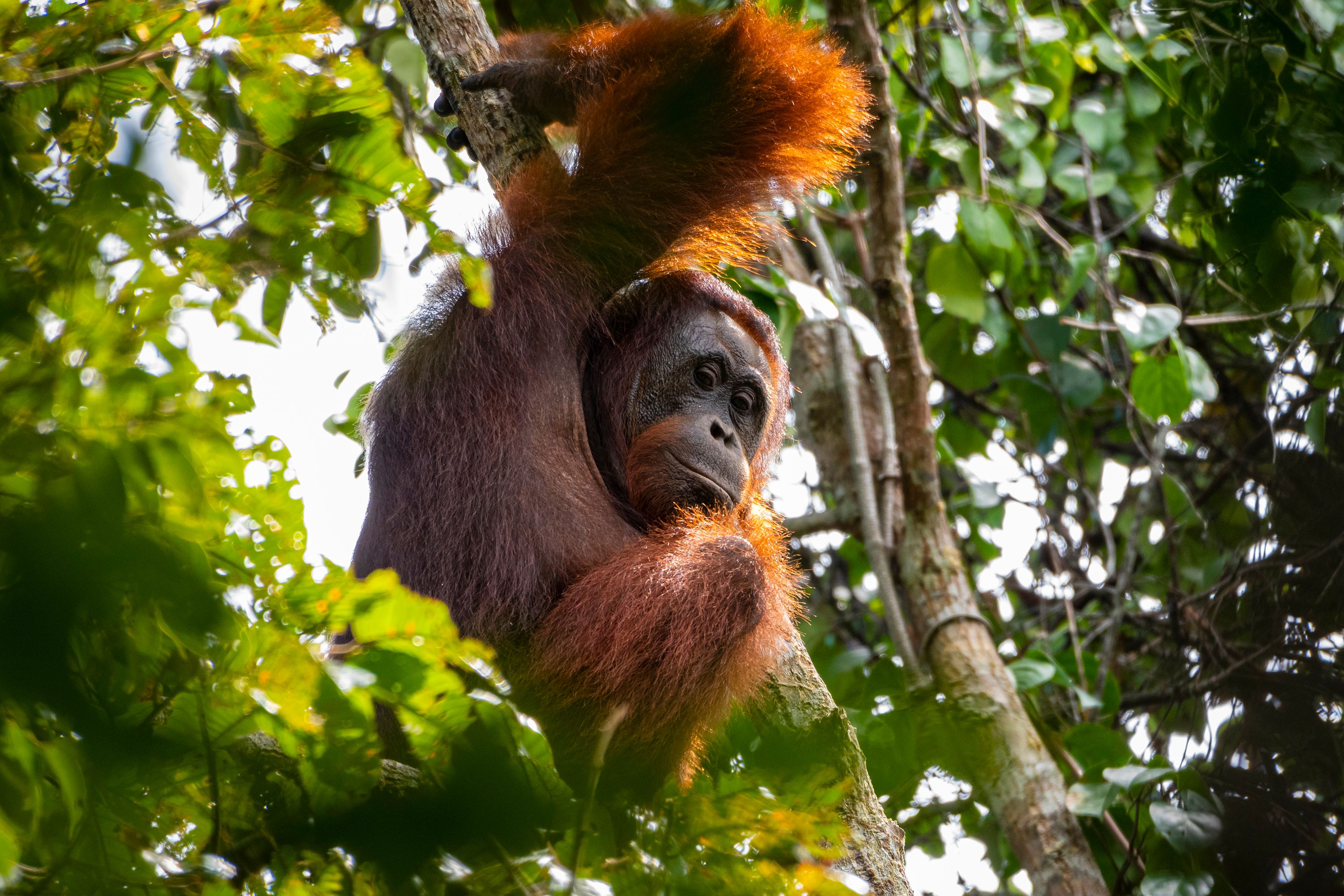Indonesia's Iconic Orangutans
More than three-quarters of the world’s orangutans live in the forests of Indonesian Borneo.
Sixty percent of the world’s wildlife was lost in the last 45 years, which is why The Nature Conservancy (TNC) is dedicated to protecting lands so wildlife populations have room to thrive. In Indonesia, we are taking a holistic approach to conserving orangutans alongside our country partner Yayasan Konservasi Alam Nusantara (YKAN).
The tropical rainforests of Indonesian Borneo—the third-largest island in the world—straddle the equator in Southeast Asia and are home to an incredible diversity of plants and animals. Among them is the orangutan. More than three-quarters of the world’s orangutans rely on the bounty of these lush rainforests for survival. Their name even comes from the Indonesian words orang and hutan, meaning “person of the forest.”

The rainforests of Indonesian Borneo are the orangutans' forests.
Yet throughout Borneo, orangutans are becoming refugees from their forest homes as they are logged (often illegally) or cleared to make way for new mines and vast oil palm plantations. Indonesia produces about half of the world’s palm oil, a profitable and ubiquitous food and cosmetics ingredient that has driven slash-and-burn deforestation and destruction of peat lands.
Millions of acres of forests where orangutans once roamed are now green deserts that support only human consumption.
Quote: Dr. Herlina Hartanto
In fact, in July the International Union for the Conservation of Nature (IUCN) changed the status of Bornean orangutans from “endangered” to “critically endangered.” Since 1960, their populations have declined by half, and scientists project this trend will continue.
The only way for orangutans to avoid extinction is for people like you to intervene, take action and get others to act, too.
At stake is not only one of humankind’s closest relatives (we share 97% of our DNA), but also an expansive rainforest that serves as one of the planet’s great lungs, filtering carbon dioxide and pollutants while providing the oxygen we breathe.
The loss of the orangutans' forest affects us all.


With unparalleled regional experience in sustainable forest management and a non-partisan, collaborative approach, TNC is playing a unique role in Indonesia to help reverse the decline of Bornean orangutan populations. In partnership with YKAN and a range of stakeholders who have the potential to sustain orangutan populations across large areas of forest, we are:
- Working with forestry and palm oil companies to test and implement land management practices that lessen impacts to forest habitat and reduce carbon emissions while maintaining profits;
- Helping palm oil companies reduce conflicts with orangutans that stray onto plantation lands;
- Providing tools for local communities to work with government to protect their village forests;
- Assisting communities to develop forest-friendly livelihoods such as sustainable agriculture and sale of forest products like honey; and
- Collaborating with scientific institutions to research and monitor orangutans and their habitat.
We believe this collaborative approach to conserving orangutan forests offers our best hope for the future of these great apes.
-

Protecting Orangutans in Indonesian-Borneo Webinar
The tropical rainforests of Borneo—a region of critical biodiversity and home to three-quarters of the world’s orangutans—are disappearing. Immerse yourself in the sights and sounds of the rainforest and learn about efforts to protect it. Watch Now




